
Read about START-PROF pipe stress analysis software
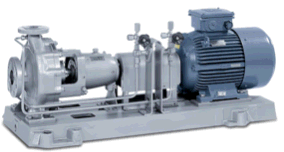
This element allows to model the pumps and check the loads according to ISO 5199 standard. One "Pump" object can be connected to one or two nodes. Allowable loads are checked for each individual nozzle and for whole pump.
Analysis results can be found in Loads on Nozzles and Equipment Table. See also "How to Reduce the Nozzle Loads in START-PROF"
There can be two options of using pump element:
1. Put Pump nozzles into the pipe end nodes. In this case, the pump nozzles are automatically modeled as an fixed anchors. Pump temperature expansions are automatically modeled as anchor movements.
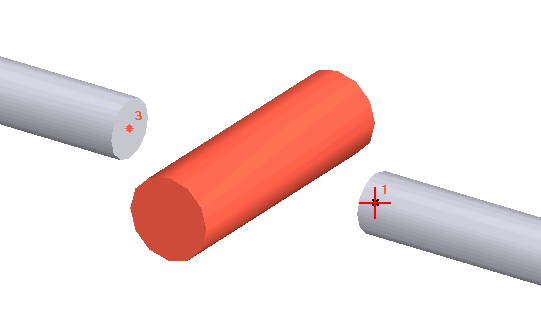
2. Put Pump nozzles into intermediate nodes. In this case user should create the pump model using rigid elements, cylindrical shells, and other elements. Temperature expansion are modeled as temperature expansions of elements, that model the pump (rigid elements, pipes etc.)
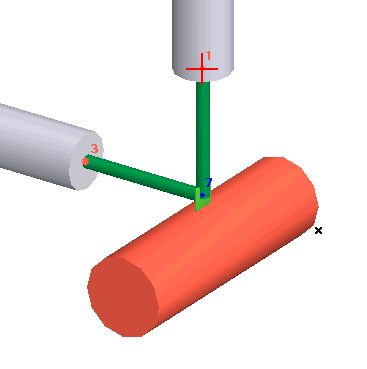
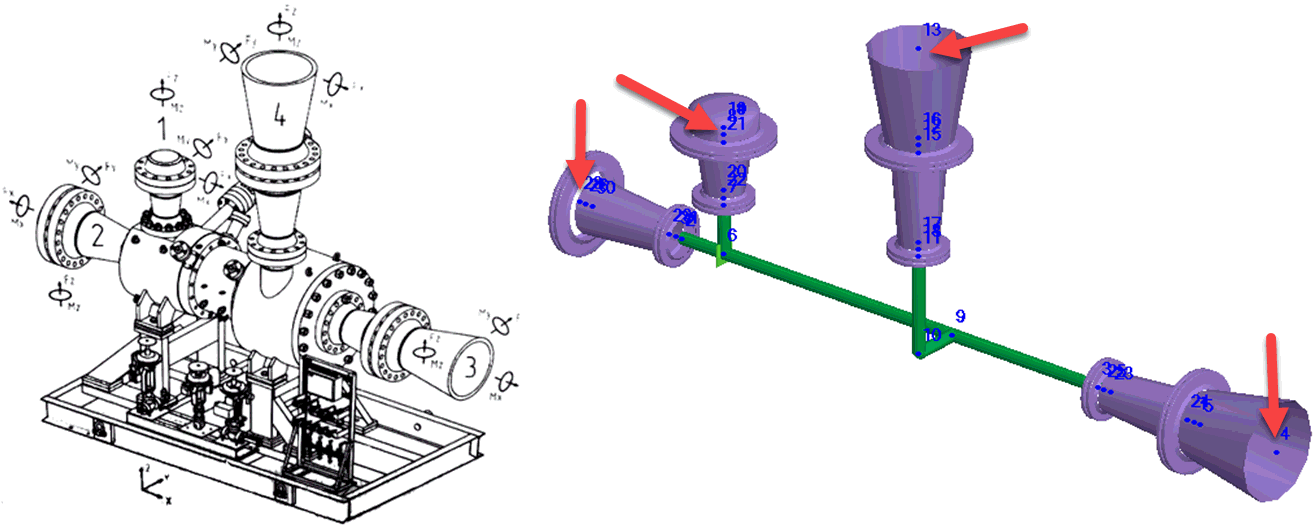
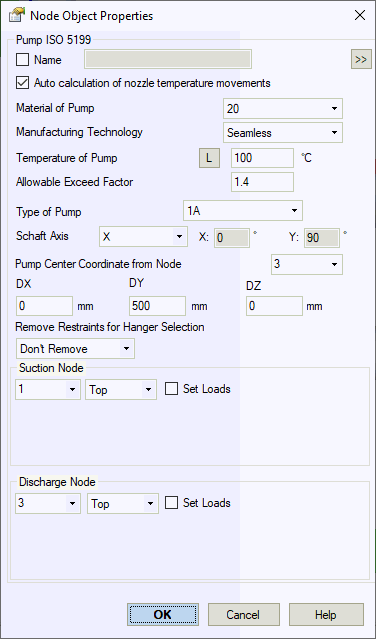
Property |
Description |
Name |
Element name. If checked then it shown in 3D view |
Auto calculation of nozzle temperature movements |
Automatically calculate the nozzle movements as DX*Alpha*(T-Ta), DY*Alpha*(T-Ta), DZ*Alpha*(T-Ta), where Alpha is thermal expansion factor (taken from selected material properties), T is equipment temperature, Ta is ambient temperature, DX, DY, DZ are distances from pump center. If checkbox is not checked, then nozzle movements can be specified manually |
Material |
Material from materials database |
Manufacturing technology |
For ASME B31.1, ASME B31.3, DL/T 5366-2014 seamless pipe will always use Wl=1.0. For electric-welded pipe Wl will be specified from database. More... When using GOST 32388-2013, pipe physical properties are taken from different materials databases depending on pipe type (seamless/welded). |
Temperature |
Pump Temperature. More... This
property can be changed in different operation
modes. To see the value of this property in all operating
modes push the |
Allowable Exceed Factor |
The default value is 1.4. You can change this value according to pump manufacturer instructions.
|
Type of pump |
|
Fshaft Direction |
Fshaft X-axis direction according to drawing:
|
Pump Center Point Offsets |
The node, and offsets from this node to the pump centre (point 3 on the drawings above) |
Remove restraints for hanger selection |
If this option is activated, then some restraints are removed from nozzle element during weight run of variable and constant spring selection. During main analysis restraints are working. This trick allows to remove the weight part of loading from the nozzle element. Springs will take the exact load, at which displacements from pure weight load is zero. Options:
|
Suction Nozzle Discharge Nozzle |
Set the node number to which suction and discharge nozzles are connected to. Also specify the type of nozzle (Top, Side, End). If other side piping model is absent, you can specify the loads manually, just select "Set Custom Loads" |
Set Loads |
If the piping is modeled only for one nozzle of the pump, then user can apply the loads for the second nozzle to perform checks according to B.4.4. To do this you can enable this option and et the loads |
Pump allowable loads are shown in the table B.3
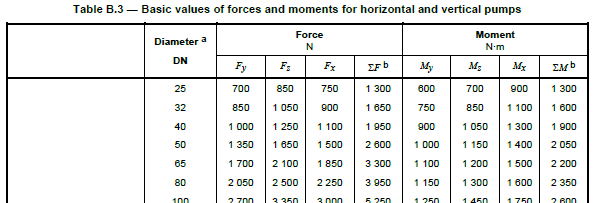
START-PROF performs additional checks according to B.4.4

To insert a pump, select the desired node and use the menu option: Insert > Equipment > Pump ISO 5199